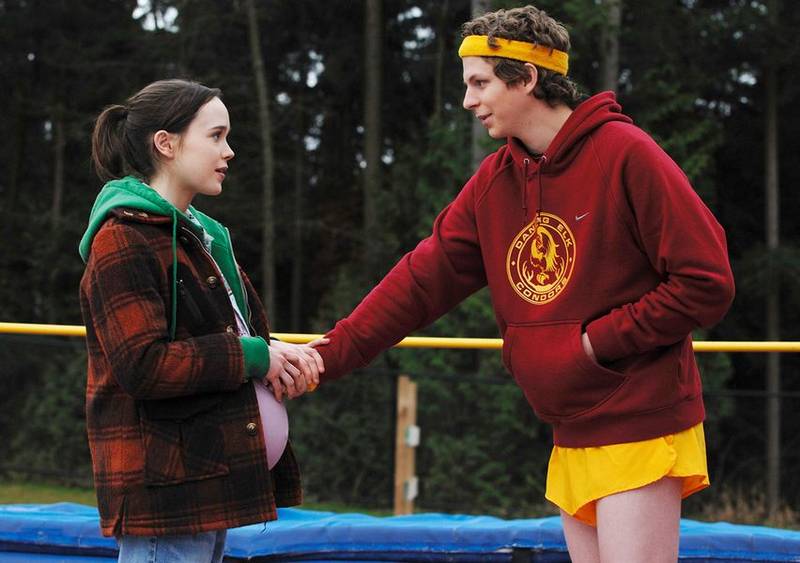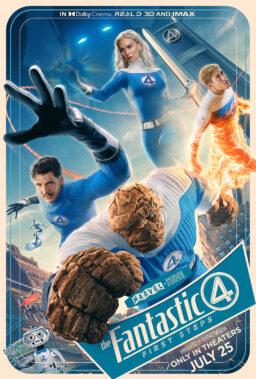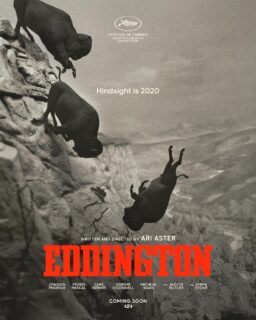TORONTO, Ont. — I don’t know when I’ve heard a standing ovation so long, loud and warm as the one after Jason Reitman’s “Juno,” which I predict will become quickly beloved when it opens at Christmas time, and win a best actress nomination for its 20- year old star, Ellen Page.
It’s the kind of movie you almost insult by describing the plot, because the plot sounds standard and this is a fresh, quirky, unusually intelligent comedy about a 16-year-old girl who wins our hearts in the first scene. Page plays Juno, who gets pregnant, and — no, that’s not it at all. Every element in the movie including her getting pregnant, and her non-boyfriend, and her parents, and the couple that wants to take the baby for adoption, is completely unlike any version of those characters I have ever seen before. And the dialogue is so quick and funny you feel the actors are performing it on a high-wire.
It was so much fun to sit with a huge audience that laughed not just in good humor, but in appreciation and sympathy. Her boyfriend, played by Michael Cera, is so clueless that Juno translates that as “not being like everyone else.” Her father and stepmother, the superb character actors J.K. Simmons and Allison Janney, are older, wiser and funnier than a teenager’s parents are ever allowed to be. The hopeful adoptive couple (Jennifer Garner and Jason Bateman) are the opposite of what you’d expect, and then turn out to be the opposite of that. And the whole story is textured within a school year that focuses the growing-up that Juno has to do.
This is Reitman’s second film, after the also smart and funny but very different “Thank You for Smoking” (2005), and positions the 30-year old son of Ivan Reitman (“Ghostbusters”) in the first rank of his generation. It’s a nice coincidence that Juno’s family nickname is “Junebug,” reminding us of Phil Morrison’s 2005 comedy “Junebug” and its equally lovable heroine. The magical screenplay is Diablo Cody’s first, and I won’t ask you to believe me, just look up her biography on IMDb.com.
And now for something complete different, which would certainly be Sean Penn’s uncompromising “Into the Wild,” with Emile Hirsch’s career-making performance as a young idealist who treks into the Alaskan wilderness to live in harmony with nature, which is not in harmony with him.
Based on the Jon Krakauer best-seller inspired by the real- life experience of Christopher McCandless, Penn’s film begins as a road trip. The young man, a dreamer and a loner, meets strangers who become friends, who care for him, mentor him and worry about him, in a series of self-contained vignettes which are like the last sightings of a boat drifting out to sea. Krakauer and Penn’s screenplay takes unremittingly grim material and illuminates it with its hero’s idealism, his poetry, and his unwise self-confidence.
“Starting Out in the Evening” contains another fascinating performance about a self-confident young woman, and pairs it with perhaps Frank Langella’s finest work. He plays an aging professor, once considered a great novelist, now long dormant, whose life is upset by a brash young graduate student (Lauren Ambrose) who is doing her thesis on him and decides he needs jump-starting. The professor’s daughter (Lili Taylor) is not pleased with this new person in her father’s life, and the prospect of a May-December romance hovers over the story like a storm about to burst.
Director Andrew Wagner’s first film was “The Talent Given Us,” (2005) a quasi-real documentary about a cross-country trip his family makes to visit him. The fact that he is himself shooting the doc along the way makes it quasi-real, but absolutely everything is real about his family. Now he shows a sure touch for a drama that needs gentle, subtle handling to work a well as it does — and gets it, and deserves it.












